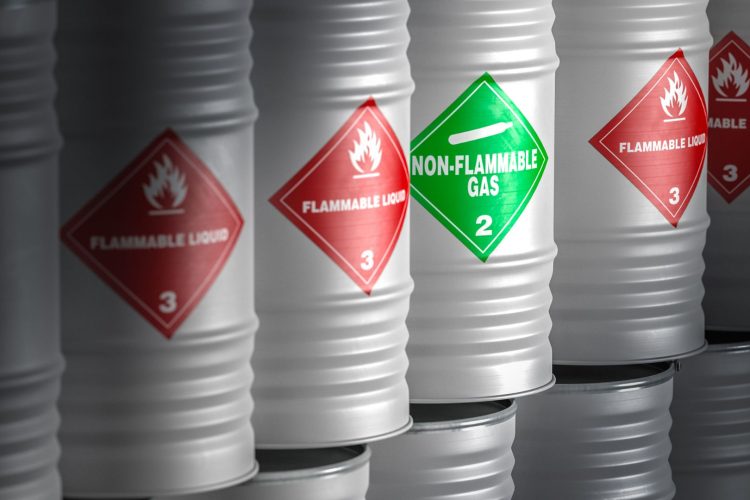
Confused whether you require UN/IIP certification? Is it a necessity for Exporters?
In today’s interconnected world of trade, ensuring the safe transport of goods is a top priority, especially when dealing with hazardous materials. That’s where UN Approved Packaging comes in – a system designed to make this challenging task a bit easier.
What is UN/IIP Approval?
Before we get into the details, let’s understand the basics. UN/IIP Approval is like a safety stamp for
packaging used to transport dangerous goods. It’s overseen by the United Nations Expert Committee on
Hazardous Goods and managed in India by the Indian Institute of Packaging (IIP).
The UN mark is a symbol you’ll find on approved packaging, indicating that it meets strict standards for classifying, packaging, marking, and labeling dangerous goods. The International Maritime Dangerous Goods Code (IMDG) oversees sea shipping, while the International Civil Aviation Organization (ICAO) handles air transportation.
The UN mark is a symbol you’ll find on approved packaging, indicating that it meets strict standards for classifying, packaging, marking, and labeling dangerous goods. The International Maritime Dangerous Goods Code (IMDG) oversees sea shipping, while the International Civil Aviation Organization (ICAO) handles air transportation.
Who needs to apply?
Navigating the world of UN IIP Certification can be confusing, especially when it comes to figuring out
who needs to apply for it. Let’s clear the air – this certification is for packaging manufacturers, not
exporters or those producing hazardous goods that require such packaging.
What if the same packaging is used for Non-Hazardous Products?
In the maze of UN IIP Certification, clarity is key. Here’s a simple answer: Manufacturers seeking UN IIP
Certification are required only for packages dedicated to packing hazardous goods. If the packaging is
dual-purpose for non-hazardous products, there’s no need to navigate the certification route. It’s a
targeted process for the safety of hazardous materials in transit.
The Role of the Indian Institute of Packaging (IIP)
In India, the IIP takes charge of issuing the UN Certificate. Authorized by the Ministry of Ports, Shipping, and Waterways, and the Directorate General of Civil Aviation under the Ministry of Civil Aviation, the IIP
tests bulk packages and issues UN Certificates to manufacturers and dealers of hazardous goods
packages.
What is UN Approved Packaging?
UN Approved Packaging is more than just a label; it’s a promise of safety during transit. It’s specially
designed, tested, and certified to ensure the secure transportation of dangerous goods by road, sea, rail,
or air. At its heart is the UN Mark – a badge of approval to UN standards. This mark varies for different
packaging types and contains crucial information about the packaging, like its type, material, and
performance standards.
Classes of Dangerous or Hazardous Goods
Understanding the classes of hazardous goods is key. Each class requires specific packaging types tested
at IIP:
Class 1: Explosive
Class 2: Gases
Class 3: Flammable Liquids
Class 4: Flammable Solids
Class 5: Oxidising Substances and Organic Peroxide
Class 6: Toxic and Infectious Substances
Class 7: Radioactive Material
Class 8: Corrosive Substances
Class 9: Miscellaneous Dangerous Substances or Articles
Class 1: Explosive
Class 2: Gases
Class 3: Flammable Liquids
Class 4: Flammable Solids
Class 5: Oxidising Substances and Organic Peroxide
Class 6: Toxic and Infectious Substances
Class 7: Radioactive Material
Class 8: Corrosive Substances
Class 9: Miscellaneous Dangerous Substances or Articles
Why Does UN Certification Matter?
Beyond following rules, UN certification is a promise of safety, rule adherence, and smooth
transportation. Following UN standards ensures the safety of people, property, and the environment,
with legal consequences if rules aren’t followed.
Choosing the right packaging isn’t just about moving goods; it’s about doing it responsibly and avoiding legal troubles.
Choosing the right packaging isn’t just about moving goods; it’s about doing it responsibly and avoiding legal troubles.
UN Certification Validity Periods:
For manufacturers falling under the general category (non-ISO 9000), the UN Certification holds a
validity period of 9 months. On the other hand, ISO-9000 certified manufacturers benefit from an
extended validity period of 18 months. It’s imperative to note that no extensions will be granted beyond
these stipulated durations.
UN Packing Group:
Packing Group I (X): High danger.
Packing Group II (Y): Medium danger.
Packing Group III (Z): Low danger.
Choosing the right group is critical, determining the packaging's suitability for different danger levels.
Packing Group II (Y): Medium danger.
Packing Group III (Z): Low danger.
Choosing the right group is critical, determining the packaging's suitability for different danger levels.
Conclusion:
In the realm of global trade, UN Approved Packaging is a vital assurance for the safe transport of
hazardous goods. Governed by rigorous standards set by the United Nations Expert Committee on
Hazardous Goods, this certification is exclusively for packaging manufacturers, not exporters or goods
producers. If the same packaging is used for non-hazardous products, certification isn’t necessary. The
Indian Institute of Packaging (IIP) facilitates this process in India, ensuring compliance and safety. UN
Approved Packaging goes beyond being a label; it’s a promise of safety, responsibility, and ethical
commerce in the interconnected world of trade.
The content of this article is intended to provide a general guide to the subject matter. Specialistadvice should be sought about your specific circumstances.
Popular Post
1

2

3



0 Comments